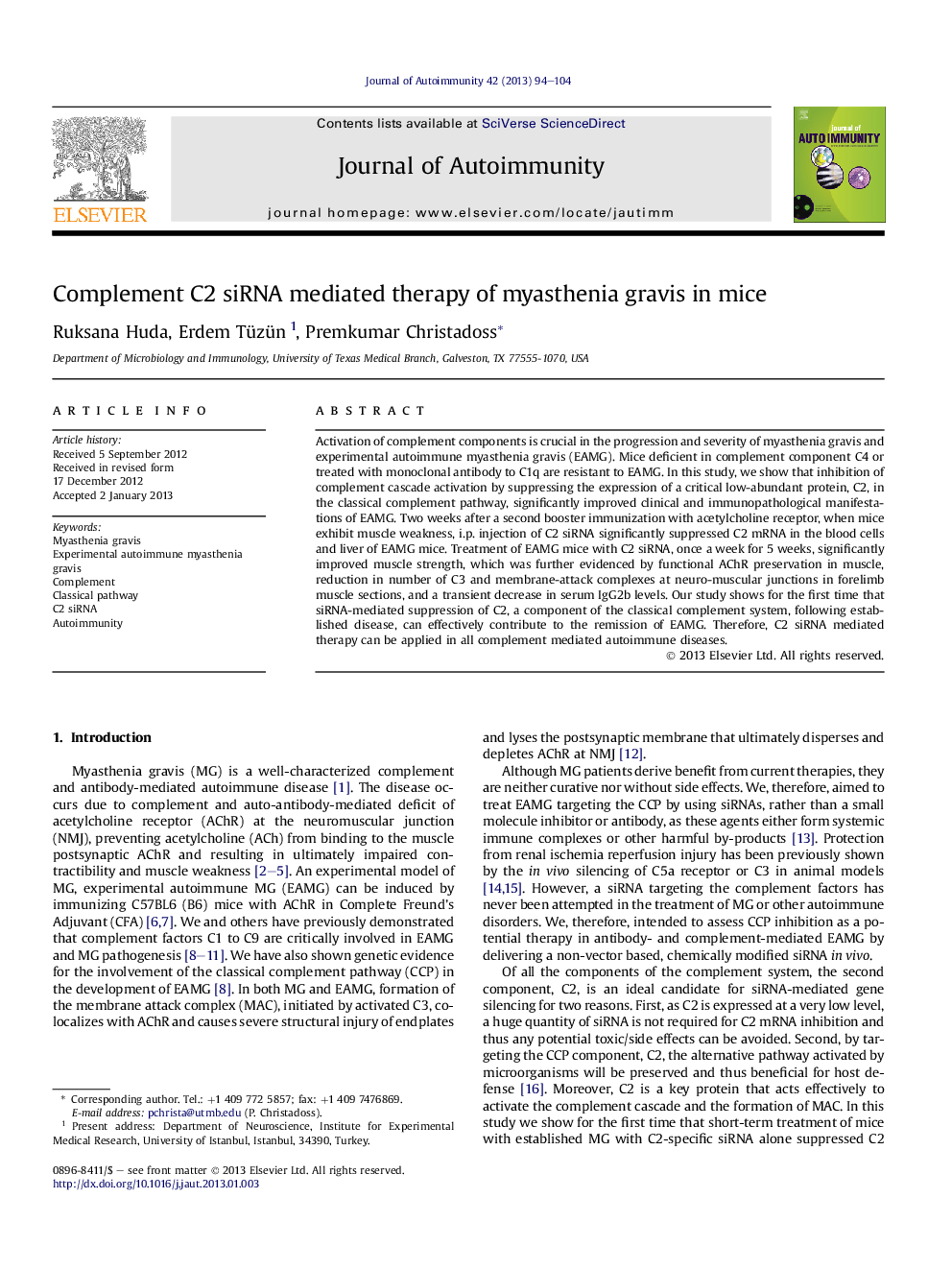| Article ID | Journal | Published Year | Pages | File Type |
|---|---|---|---|---|
| 3367885 | Journal of Autoimmunity | 2013 | 11 Pages |
Activation of complement components is crucial in the progression and severity of myasthenia gravis and experimental autoimmune myasthenia gravis (EAMG). Mice deficient in complement component C4 or treated with monoclonal antibody to C1q are resistant to EAMG. In this study, we show that inhibition of complement cascade activation by suppressing the expression of a critical low-abundant protein, C2, in the classical complement pathway, significantly improved clinical and immunopathological manifestations of EAMG. Two weeks after a second booster immunization with acetylcholine receptor, when mice exhibit muscle weakness, i.p. injection of C2 siRNA significantly suppressed C2 mRNA in the blood cells and liver of EAMG mice. Treatment of EAMG mice with C2 siRNA, once a week for 5 weeks, significantly improved muscle strength, which was further evidenced by functional AChR preservation in muscle, reduction in number of C3 and membrane-attack complexes at neuro-muscular junctions in forelimb muscle sections, and a transient decrease in serum IgG2b levels. Our study shows for the first time that siRNA-mediated suppression of C2, a component of the classical complement system, following established disease, can effectively contribute to the remission of EAMG. Therefore, C2 siRNA mediated therapy can be applied in all complement mediated autoimmune diseases.
► C2 siRNA mediated inhibition of classical complement pathway treats myasthenia gravis in mice. ► Even partial and transient inhibition of classical complement pathway activation is sufficient to treat EAMG. ► C2 siRNA-mediated IgG2b reduction suggests that classical complement pathway plays a role in adaptive immunity.
